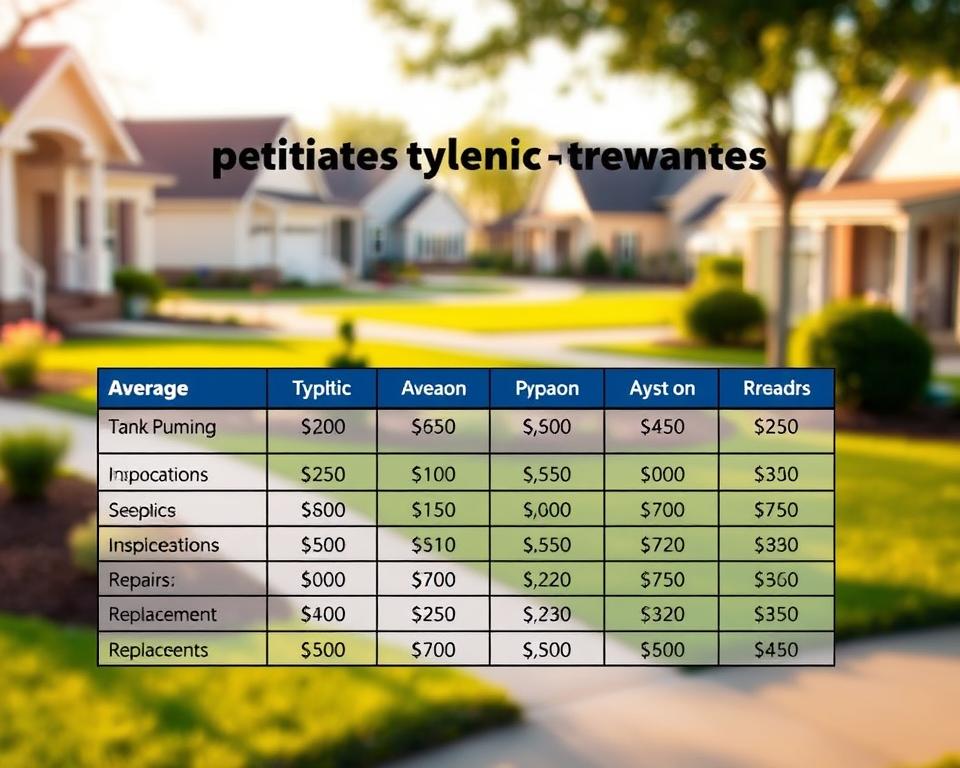Essential Tips for Septic System Pumping
Ever pondered how often you should schedule septic system pumping to avert costly malfunctions? With more than 20 percent of U.S. households using septic systems, grasping their maintenance is vital. Pinpointing the right time to order a septic tank service is paramount to its longevity. Additionally, homeowners have access to budget-friendly septic pumping solutions that provide excellent functionality while staying on budget. Below, we outline essential upkeep tips useful for every homeowner.
Fundamental Learnings
- Regular septic system pumping is vital for efficient performance.
- Recognizing the indicators that show the requirement for service can head off major issues.
- Choosing qualified septic system pumpers secures quality maintenance.
- Affordable septic pumping alternatives are accessible for homeowners.
- Periodic inspections support maximum system performance.
Know How Your Septic System Works
A septic system plays a key role in managing household wastewater, consisting of several essential components that operate collectively. The main drain line conveys wastewater from your home to the septic tank, where the process begins. In the tank, an underground chamber, solids settle at the bottom, and bacteria break down these solids, processing the waste efficiently.
The treated liquid effluent next flows from the septic tank to the distribution box, where it is distributed evenly across the drain field or leach field. Here, the soil extends the filtration, additionally purify the wastewater. Comprehending the functions of these septic system parts is critical. It allows homeowners to supervise and upkeep their systems effectively.
Knowing how your septic system runs allows you to take preventive maintenance measures. It’s beneficial to have regular meetings with qualified service providers of septic systems – septic system service near me. They provide crucial insights for best performance of your system. These professionals help in planning the essential pump-outs and checks. This diligence can significantly lengthen your septic system’s lifespan.
Why Septic System Maintenance Matters
Keeping your septic tank regularly is pivotal for homeowners who wish their system to last. A well-cared-for system provides peace of mind and secures your property’s value. Without adequate care, you’re exposing yourself to system breakdowns and health dangers.
Selecting a top-notch septic pumping service is important. They provide timely inspections and pump-outs, removing sludge and scum buildup. If maintenance is overlooked, emergency pumping may be required, which is pricey.
Following a steady maintenance plan is wise. It entails professional evaluations and regular pumping. This preventative measure helps avoid urgent issues, creating a safer living environment for everyone.

How to Tell Your Septic System Requires Service
Keeping an eye on septic system issues can sidestep costly repairs and major damage. Common signs indicate when your system needs a check. These consist of:
- Delayed drains throughout the house
- Pooling water in the yard above the drain field
- Bad odors near the septic tank or leach field
- Exceptionally lush grass growth in specific areas of your yard
These signs could signify problems that might lead to your system failing. Prompt action is critical. Contacting septic pumping experts for an inspection aids. Early intervention stops minor issues from turning into major ones. Additionally, routine upkeep ensures your system works well and has a longer life.
Best Practices for Septic System Pumping
Timely pumping of your septic tank is essential to avoid expensive clogs and backups. It’s necessary to establish the right schedule for maintenance. Homeowners should typically plan pumping every 2 to 5 years, depending on the tank’s size and household wastewater levels. Heavy use of garbage disposals may necessitate more frequent pumping.
Using professional pumpers means your tank gets a complete clean and check-up. During pumping, technicians look for any issues, such as damaged baffles. Spotting these problems at an early stage heads off bigger expenses and inconveniences later. Scheduled pumping schedules and expert help provide your septic system’s efficient operation.
Regular Inspections Keep Your Septic System Running
Regular inspections are vital for your septic system’s efficiency. Septic system inspections reveal minor issues before they worsen. Experts advise inspections every three to five years, influenced by system size and household usage. This prevents expensive fixes.
Holding maintenance records is important for documenting your system’s condition. These records provide insights into previous inspections, repairs, and suitable intervals to schedule septic tank cleaning services. With this information, planning for future upkeep becomes more straightforward, retaining septic systems in prime shape.
Frequent inspections and detailed record-keeping not only improve system efficiency but also prolong its life. This method secures the environment and the investment in a safe, operational home.
| Inspection Type | Recommendation Frequency | Benefits |
|---|---|---|
| Visual Inspection | Annually | Identify surface issues |
| Professional Inspection | Every 3–5 years | Assess functionality and detect problems |
| Septic Tank Pumping | Every 3–6 years | Prevent overflow and system failure |
Efficient Water Usage to Extend Septic Life
Smart water use is essential for keeping your septic system healthy. It not only helps the environment but also improves the performance of your home’s plumbing. By adopting easy, yet effective, conservation methods, homeowners can cut down on wastewater.
Spread out your laundry activities over the week instead of running back-to-back loads. This allows the septic system to process water better and stops tank overflow. Choosing low-flow fixtures in your kitchens and bathrooms produces considerable water savings, keeping the water pressure up while lowering the flow rate, thus trimming the amount of wastewater produced each day.
Swiftly fixing leaks is another way to assist your septic system. Even a small leak can lead to a large waste of water, stressing the septic system. Through regular inspections and repairs, you materially improve the system’s efficiency.
Prioritizing water conservation isn’t just advantageous for your septic system; it’s also a step towards environmentally responsible living. Integrating such practices into everyday habits serves both your household and the planet.
Managing Household Waste Correctly
Homeowners play a crucial role in maintaining their septic system’s health by managing household waste properly. It’s essential to avoid flushing non-biodegradable items like wipes, plastics, and other damaging products in the system. These items can create clogs, leading to expensive repairs and a drop in efficiency.
Composting food scraps and organic materials is a helpful alternative to sending them to landfill. This practice markedly lowers the amount of solid waste entering the septic tank. Focusing on biodegradable waste disposal helps maintain the ecological balance needed for effective waste management.
It’s important to watch what goes down the drains. Non-decomposable items can necessitate more frequent septic tank pumping. By grasping and observing correct waste disposal methods, you can guarantee a more efficient and long-lasting septic system.
Choosing Septic-Friendly Cleaners
The health of your septic system largely hinges on your choice of cleaning products. Selecting septic-safe cleaning products is paramount. These products protect the balance of beneficial bacteria that digest waste. Many standard cleaners contain harmful chemicals that threaten this balance, causing costly repairs or system failure.
Homeowners should try natural alternatives that are both powerful and environmentally friendly. Common household items like baking soda, vinegar, and lemon juice are superb choices. These natural cleaners are not only capable but also encourage your septic system’s health.
Keeping away from products that contain antibacterial agents and chlorine bleach is vital. Such substances damage the helpful good bacteria, weakening your system’s functionality. By picking sustainable products, you protect both the efficiency and longevity of your septic system.
Why Bacteria Matter in Septic Systems
Bacteria carry out a vital role in keeping your septic system healthy. They break down solids on their own and boost nutrient processing. A lack of healthy bacteria can trigger system failure, bringing about costly repairs.
Homeowners can bolster their system by adding organic additives. These products increase beneficial bacteria, making waste decomposition more efficient. It’s important to opt for organic additives that are advantageous, not harmful, to the septic environment.
A healthy bacterial community is crucial to a septic system’s longevity and efficiency. It avoids solid buildup and lessens the need for frequent pumping. Emphasizing bacterial health ensures waste management more effective and eco-friendly.
Final Reflections
Septic system care is vital for the life and functionality of your home’s wastewater system. Following essential maintenance tips prevents hefty repairs. Knowing routine pumping and inspections is fundamental. This secures your septic system remains in peak condition.
Becoming knowledgeable of your septic system’s operation and proper methods in water and waste management is vital. Engaging professionals like All in Sanitation offers expertise. This contributes to your septic system’s long-term health and offers reassurance.
Putting effort into proper septic maintenance today yields future benefits. It safeguards your home and improves your family’s quality of life. Focusing on septic system care delivers confidence with a well-maintained system.
